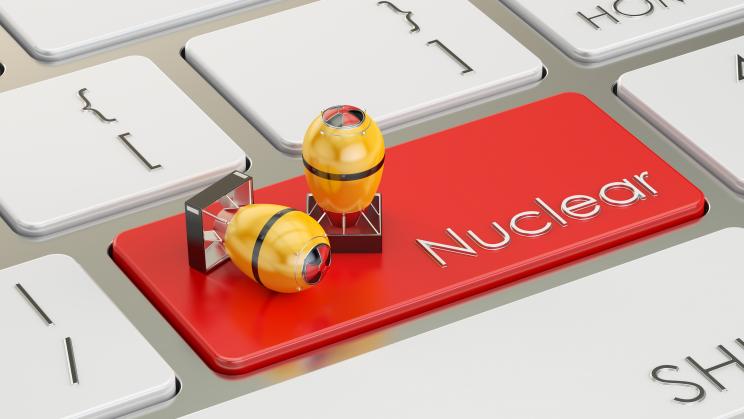
Ahead of the 2019 Preparatory Committee for the 2020 Nuclear Non-Proliferation Treaty Review Conference at the United Nations headquarters in New York, SIPRI is pleased to announce the release of a new edited volume, the first in a trilogy on regional perspectives, ‘The Impact of Artificial Intelligence on Strategic Stability and Nuclear Risk: Euro-Atlantic Perspectives’. Companion volumes offering perspectives from East Asia and South Asia are forthcoming.
Since the beginning of this decade, breakthroughs in machine learning and approaches to artificial intelligence (AI) engineering have enabled the development of increasingly capable AI applications and autonomous systems. In the military sphere, these advances have created many opportunities, but have also raised concerns from ethical, legal, operational and strategic standpoints. This edited volume focuses on a new aspect: the impact of AI on nuclear strategy.
The report, edited by Dr Vincent Boulanin, Senior Researcher at SIPRI, investigates why—and how—machine learning and autonomy might become the focus of an arms race among nuclear-armed states. It also examines the impact that the adoption of these technologies might have on their calculations of strategic stability and nuclear risk at the regional and global levels.
The contributors—14 experts from the Euro-Atlantic community—agree that AI could enable major transformations in many areas of warfare, including the nuclear domain; however, future developments will differ from the common representation of military AI in popular culture. In fact, the report emphasizes that the types of risk posed by AI in the nuclear domain are not necessarily new: recent advances in AI exacerbate old and well-known risks, familiar from the cold war confrontation between the Soviet Union and the West. This means that solutions already exist.
Drawing together the different Euro-Atlantic perspectives in the report, it can be concluded that states should devote time and resources to developing a clear understanding of the limitations of AI and how the strategic risks posed by military uses of AI can be mitigated.
The experts recommend that this should be part of an inclusive international discussion: it could start with, but not be limited to, a conversation between like-minded countries. North Atlantic Treaty Organization (NATO) member states, Russia and other nuclear-armed states such as China and India should be engaging with each other on this issue. This can be done bilaterally or multilaterally through existing arms control and nuclear risk-reduction discussion tracks. Civil society organizations, academia and industry should also be invited to play a greater role in these interstate discussions, since they can help states to better understand the developmental trajectory of technology and associated risks.
About the report
The report is the first instalment in a trilogy that explores regional perspectives and trends related to the impact that recent advances in AI could have on nuclear weapons and doctrines, strategic stability and nuclear risk. The second and third instalments will cover East Asia and South Asia. A final report, informed by the findings of the three regional reports, will be launched later in 2019.